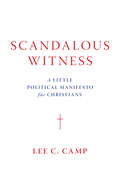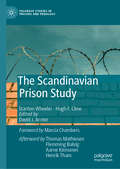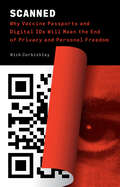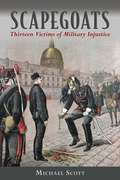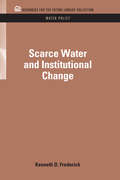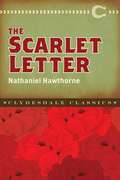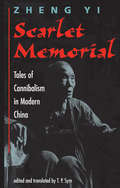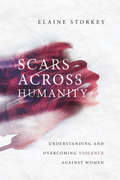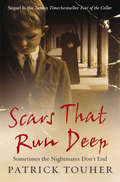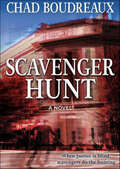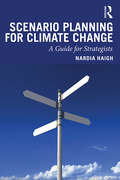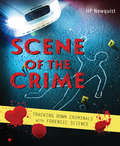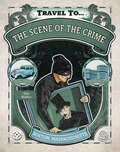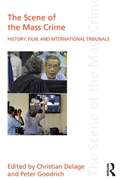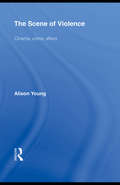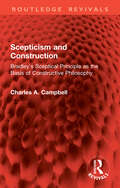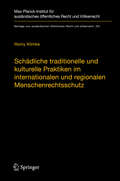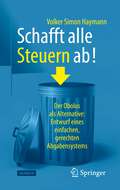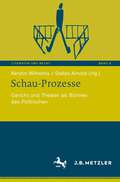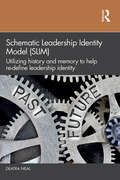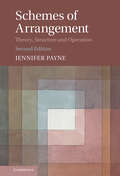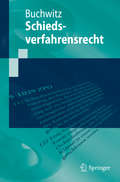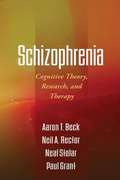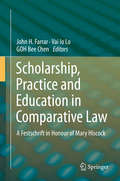- Table View
- List View
Scandalous Witness: A Little Political Manifesto for Christians
by Lee C. CampChristian identity is in moral and political crisis, scandalized by the many ways in which it has been coopted and misrepresented. Addressing this painful reality, Lee Camp writes that Christianity in America has been made into a bad public joke because of &“our failure to rightly understand what Christianity is.&” From this provocative claim, Camp&’s manifesto makes the convincing case that a renewed Christian politic is more essential than ever, one that is &“neither left nor right nor religious,&” but a prophetic way of life modeled after Jesus of Nazareth. Camp&’s robust vision exposes modern parodies of faith—the American concept of &“Christian values,&” for one—and challenges Christians to rethink who they are and how they participate in the modern world. Authentic gospel truth is a scandal to the American myth, he argues, and we are called to be scandalous witnesses.
The Scandinavian Prison Study (Palgrave Studies in Prisons and Penology)
by Stanton Wheeler Hugh F. ClineThis book presents the formerly-unpublished manuscript by Wheeler and Cline detailing the landmark, comparative prisons study they conducted in the 1960s which examined fifteen Scandinavian prisons and nearly 2000 inmates across four Nordic countries. At the time, it was the largest comparative study of prisons and inmate behavior ever undertaken and despite 15 years of analysis and write-up it was never published but it influenced many other important prison studies that followed. This book engages with the functionalist perspectives that were widespread in the 1960s, and tries to answer some of the classical questions of prison sociology such as how prisoners adapt to imprisonment and the degree to which prisoner adaptations can be attributed to characteristics of prisoners and prisons. It examines the nature and structure of prisons, the effect of that structure on individual prisoners and the other factors that may influence the way that they respond to confinement. It also includes discussion about the prisoners’ considerations of justice and fairness and a explanation of the study design and data which was highly unique at the time. The Scandinavian Prison Study brings Wheeler and Cline's pioneering work into the present context with a preface and an introduction which discuss the questions and claims raised in the book still relevant to this day.
Scanned: Why Vaccine Passports and Digital IDs Will Mean the End of Privacy and Personal Freedom
by null Nick CorbishleyUnprecedented levels of government surveillance; loss of privacy through corporate data mining; centralized digital currency; behavioral tracking and control: Is this the digital future we&’ve been sleepwalking towards?&“Nick Corbishley has the frenetic energy of someone who has seen too much. His book is fantastic.&”—Russell Brand, &“Under the Skin&” podcastUntold millions of people in &“democracies&” all over the world were barred from accessing basic services in 2021—from earning a living or traveling within their own country—because they lacked proper digital identification surrounding the vaccine. For many, 2021 will be remembered as the year that basic, long-standing bioethical principles such as bodily autonomy, bodily integrity, and the informed consent of the patient ended. In Scanned, investigative journalist Nick Corbishley examines and exposes the lies and overreach that underpin the wholesale erosion of personal freedoms that is continuing to happen at an alarming rate. In clear language supported by rigorous research, Corbishley uncovers how the rollout of vaccine passports, digital IDs and centralized digital currency not only represents an unprecedented violation of privacy and bodily autonomy, but how it perpetuates the idea that a &“small&” collective sacrifice will allow us to return to normality.Today, digital &“health&” IDs threaten to go totally global, with the World Health Organization&’s tacit endorsement. On all five continents governments and corporations are quietly but quickly rolling out digital ID programs. At the same time, 90% of the world&’s central banks are exploring a central bank digital currency (CBDC), with half of them already developing an electronic version of their fiat money.These interlocking initiatives threaten to radically reconfigure the way societies and economies function. If successful, they will facilitate the single largest expansion of totalitarian power in history, exposing citizens to unprecedented levels of government and corporate surveillance, data mining, and behavioral control. The stakes could not be higher.And if things continue on the current path, Corbishley makes clear, getting back to &“normal&” is never happening. Put simply, instead of a return to normality, we will see the creation of a starkly different form of existence in which most of us will have virtually no agency over our own lives.
Scapegoats: Thirteen Victims of Military Injustice
by Michael Scott"At all costs avoid blame. ” Such is the creed of dictators and politicians, tycoons and company chairmen, media celebrities, and spin doctors the world over. But what about men at war, where the penalties for errors of judgment can be devastating? History is full of tales of those who have been wrongly castigated in the rush to find a culprit; only later, sometimes much later, when the real truth comes out, is the scapegoat exonerated. Exposed here are the real stories behind the myths that allow the reader to make a balanced judgment on history’s fairness to the individual, including those of: Captain Alfred Dreyfus, exiled and imprisoned on charges of treason in 1895 Lieutenant General James Longstreet, blamed for the failure of Pickett’s Charge in 1863 Major General Jackie Smyth, removed from the Army after ordering the destruction of the Sittang Bridge in 1942 Lieutenant General Roméo Dallaire, let down by the United Nations over the Rwanda massacres of 1994 This superbly researched book by a former professional soldier uncovers what might be termed the most disgraceful miscarriages of military justice. Skyhorse Publishing, as well as our Arcade imprint, are proud to publish a broad range of books for readers interested in history--books about World War II, the Third Reich, Hitler and his henchmen, the JFK assassination, conspiracies, the American Civil War, the American Revolution, gladiators, Vikings, ancient Rome, medieval times, the old West, and much more. While not every title we publish becomes a New York Times bestseller or a national bestseller, we are committed to books on subjects that are sometimes overlooked and to authors whose work might not otherwise find a home.
Scarce Water and Institutional Change (RFF Water Policy Set)
by Kenneth D. FrederickThe authors assess alternative approaches to meeting long-term water needs and resolving conflicts among competing water users in five areas: the Columbia River Basin; Kern County, California; south California; Virginia Beach, Virginia; and northeastern Colorado. This book argues that America's water supply problems are caused largely by bad habits and poor policies-especially policies that price water far under its true value. Originally published in 1986
The Scarlet Letter: Kaplan Sat Score Raising Classic (Clydesdale Classics)
by Nathaniel HawthornePackaged in handsome and affordable trade editions, Clydesdale Classics is a new series of essential works made available again. The series features literary phenomena with influence and themes so great that, after their publication, they changed literature forever. From the musings of literary geniuses like Mark Twain in The Adventures of Huckleberry Finn to the striking personal narrative of Harriet Jacobs in Incidents in the Life of a Slave Girl, this new series is a comprehensive collection of our history through the words of the exceptional few.The magnum opus of revered writer Nathaniel Hawthorne, The Scarlet Letter is arguably one of the greatest novels written during the nineteenth century. It is the story of Hester Prynne-a young woman accused of, tried for, and publicly punished for adultery. Set during the seventeenth century in Boston, she receives harsh ridicule from the radical Puritan community for her actions. From the affair she conceives a child, and struggles to rebuild her life and her reputation. Throughout the book Hawthorne explores controversial themes of sexuality, romance, guilt, shame, infidelity-all of which are still pertinent topics more than 150 years after its initial publication.The Scarlet Letter is a timeless story of morality, legality, struggle, and shame in a world that was so intolerant of the very things that make us human.
Scarlet Memorial: Tales of Cannibalism in Modern China
by Zheng YiThis compelling book provides a meticulously documented account of officially sanctioned cannibalism in the southwestern province of Guangxi during the Cultural Revolution. Drawing on his unique access to local archives of the Chinese Communist Party and on extensive interviews with party officials, the victims' relatives, and the murderers themselves, Zheng Yi paints a disturbing picture of official compliance in the systematic killing and cannibalization of individuals in the name of political revolution and “class struggle.”The treasure-trove of evidence Zheng Yi has unearthed offers unprecedented insights into the way the internecine, factional struggles of the Cultural Revolution reached a horrifying level of insanity and frenzy among the ethnic Zhuang people of Guangxi. Profoundly moving, acutely observed, and unflinchingly graphic, Scarlet Memorial is a shining example of a genre of investigative reporting that courageously and independently records obscure and officially censored historical events, revealing hidden dimensions of modern Chinese history and politics.
Scars Across Humanity: Understanding and Overcoming Violence Against Women
by Elaine StorkeyChristianity Today 2019 Book of the Year Award, Politics and Public Life Across the globe, acts of violence against women produce more deaths, disability, and mutilation than cancer, malaria, and traffic accidents combined. The truth is that violence on such a scale could not exist were it not structured in some way into the very fabric of societies and cultures themselves. It could not continue if it were not somehow supported by deep assumptions about the value of women, or some justification of the use of power. In many cultures such assumptions are reiterated every day in the absence of legal protection for women, or indifference toward issues of human rights. In Scars Across Humanity, Elaine Storkey offers a rigorously researched overview of this global pandemic. From female infanticide and child brides to domestic abuse, prostitution, rape, and honor killings, violence against women occurs at all stages of life, and in all cultures and societies. How and why has this violence become so prevalent? It seems ambitious to hope that we can find an answer to this question, but if violence to women is ever to be eliminated, we need to know what we are up against.
Scars that Run Deep: Sometimes the Nightmares Don't End
by Patrick TouherLeaving his abusive Irish boarding school after eight long years, Patrick Touher thought his troubles were over. But the adult world was a dangerous place for a naïve adolescent. From the Dublin Catholic boys' home to arriving alone in London, again Patrick is seen as easy prey. Yet Patrick's strength, honesty and sense of humour never left him. The boy they couldn't break fought back and eventually found love and a family. But the shadow of his early years was always with him. With the encouragement of his wife - a constant witness to his traumatic nightmares - Patrick set about taking the Christian Brother to task.The eagerly awaited sequel to bestseller Fear of the Collar that doesn't disappoint, Scars that Run Deep is a deeply moving and ultimately triumphant true story.
Scavenger Hunt: A Novel
by Chad BoudreauxWHEN JUSTICE IS BLIND, SCAVENGERS DO THE HUNTINGBlake Hudson just wants to serve his country well as a lawyer for the United States Justice Department—but when an unknown threat begins plotting his downfall, he must find who is setting him up before it costs him his life.Scavenger Hunt is a suspense novel chronicling the plight of Blake Hudson, a Justice Department lawyer assigned to a clandestine counterterrorist group created to bypass onerous legal requirements. After the group mysteriously disbands, Hudson becomes the scapegoat and is transformed from hunter to hunted. As he searches for answers and attempts to piece the puzzle together, people are following him, trying to kill him. Written for fans of fast-paced thrillers, dry humor, political gamesmanship, and Clue-like twists and turns, Scavenger Hunt carves out a distinct niche best described as a hybrid of the Robert Ludlum classics and works by Brad Meltzer. Blake Hudson's story addresses issues that have shaped recent elections and continue to frustrate interest groups and government leaders, while featuring the inner workings of the U.S. Department of Justice Building—arguably the most important and misunderstood agency in the federal government. Author Chad Boudreaux's unique voice and page-turning storytelling packs a plot-driven punch that readers won't be able to put down.
Scenario Planning for Climate Change: A Guide for Strategists
by Nardia HaighClimate change, and the resultant impact on resource management and societal wellbeing, is one of the greatest challenges facing businesses and their long-term performance. Uncertainty about access to resources, unanticipated weather events, rapidly changing market conditions and potential social unrest is felt across all business and industry sectors. This book sets out an engaging step-by-step scenario-planning method that executives, Board members, managers and consultants can follow to develop a long-term strategy for climate change tailored for their business. Most climate change strategy books discuss climate mitigation only, focusing on how companies engage with carbon policy, new technologies, markets and other stakeholders about reducing carbon emissions. This book explores these themes but also looks at strategizing for climate change adaptation. Adaptation is equally important, especially given that companies cannot negotiate with nature. There is a need to interpret climate science for business in a way that acknowledges the realities of climate change and identifies a way forwards in responding to this uncertain future.
Scene of the Crime: Tracking Down Criminals with Forensic Science
by HP NewquistLearn about the history of forensic science, how to collective and analyze evidence, and get one step closer to being a world-class, crime-solving detective!From the critically acclaimed author of The Book of Chocolate, The Human Body, and From Here to There, comes an all new nonfiction deep dive into forensic science. What is evidence and how do investigators gather it? How do you determine how long a body has been dead? Do fingerprints differ from person to person? How did some of the world's great fictional detectives, like Sherlock Holmes, further the study of forensics? Packed with lively photos, classroom activities, and engaging prose, budding private eyes and scientists will be eager to find the answers to these and other questions in HP Newquist's latest, and to learn about everything from the world's first autopsy in Ancient Rome to the role that DNA plays in solving crimes along the way.
The Scene of the Crime, Grades 5 - 9 (Travel to...)
by Lisa KurkovA life of crime doesn't pay—and yet thousands of crimes are committed every day across the country. What crimes stand out in history and why? Learn about some of the most bizarre and famous American crimes and how their locations have become a part of the fabric of our country in Scene of the Crime, part of the Travel to… book series.Crime scenes are found all across America—from sites of unforgivable events to the locations of shocking criminal actions. In this nonfiction book, readers will learn about some of the most notable crime scenes in America, and explore how we define the idea of crime in a society.True Crime Book for Grades 5-9 Features:Before- and after-reading activitiesExtension activityMap showing where readers have traveled to in the bookAbout Rourke Educational Media:We proudly publish respectful and relevant nonfiction and fiction titles that represent our diverse readers, and are designed to support reading on a level that has no limits!
The Scene of the Mass Crime: History, Film, and International Tribunals
by Peter Goodrich Christian DelageThe Scene of the Mass Crime takes up the unwritten history of the peculiar yet highly visible form of war crimes trials. These trials are the first and continuing site of the interface of law, history and film. From Nuremberg to the contemporary trials in Cambodia, film, in particular, has been crucial both as evidence of atrocity and as the means of publicizing the proceedings. But what does film bring to justice? Can law successfully address war crimes, atrocities, genocide? What do the trials actually show? What form of justice is done, and how does it relate to ordinary courts and proceedings? What lessons can be drawn from this history for the very topical political issue of filming civil and criminal trials? This book takes up the diversity and complexity of these idiosyncratic and, in strict terms, generally extra-legal medial situations. Drawing on a fascinating diversity of public trials and filmic responses, from the Trial of the Gang of Four to the Gacaca local courts of Rwanda to the filmic symbolism of 9-11, from Soviet era show trials to Nazi People's Courts leading international scholars address the theatrical, political, filmic and symbolic importance of show trials in making history, legitimating regimes and, most surprising of all, in attempting to heal trauma through law and through film. These essays will be of considerable interest to those working on international criminal law, transitional justice, genocide studies, and the relationship between law and film.
The Scene of Violence: Cinema, Crime, Affect
by Alison YoungIn the contemporary fascination with images of crime, violence gets under our skin and keeps us enthralled. The Scene of Violence explores the spectator’s encounter with the cinematic scene of violence – rape and revenge, homicide and serial killing, torture and terrorism. Providing a detailed reading of both classical and contemporary films – for example, Kill Bill, Blue Velvet, Reservoir Dogs, The Matrix, Psycho, The Accused, Elephant, Seven, Thelma & Louise, United 93, Zodiac, and No Country for Old Men – Alison Young returns the affective processes of the cinematic image to the study of law, crime and violence. Engaging with legal theory, cultural criminology and film studies, the book unfolds both our attachment to the authority of law and our identification with the illicit. Its original contribution is to bring together the cultural fascination of crime with a nuanced account of what it means to watch cinema. The Scene of Violence shows how the spectator is bound by the laws of film to the judgment of the crime-image.
Scepticism and Construction: Bradley's Sceptical Principle as the Basis of Constructive Philosophy (Routledge Revivals)
by Charles A. CampbellOriginally published in 1931, this book follows the sceptical principles of Bradley to their logical conclusions, pushing them even further than Bradley was willing to go. The argument selected as a starting point is the one used in Note A of the appendix to Appearance and Reality. The author argues for a return to the position of Kant, and opposes the central conception of Absolute Idealism, arguing for a metaphysical scepticism.
Schädliche traditionelle und kulturelle Praktiken im internationalen und regionalen Menschenrechtsschutz (Beiträge zum ausländischen öffentlichen Recht und Völkerrecht #281)
by Romy KlimkeDieses Buch befasst sich aus menschenrechtlicher Perspektive mit einer Vielzahl von Bräuchen und Riten, die als soziale Phänomene unter dem Begriff der "schädlichen traditionellen und kulturellen Praktiken" zusammengefasst werden können. Schädliche traditionelle und kulturelle Praktiken stehen heutzutage mehr denn je im Fokus öffentlicher Debatten. Angesichts der wachsenden kulturellen Vielfalt werden öffentliche Auseinandersetzungen über neue und alte Traditionen, "fremde" und "eigene" soziokulturelle Praktiken als auch die Grenzen von sozialadäquaten Selbst- und Fremdschädigungen weiter zunehmen. Die vorliegende Abhandlung erfasst und bewertet schädliche traditionelle und kulturelle Praktiken erstmals systematisch als ein universelles Phänomen und untersucht ihre menschenrechtlichen Implikationen. Damit leistet sie nicht zuletzt einen wichtigen Beitrag zur Förderung eines glaubwürdigen Menschenrechtsdiskurses innerhalb unserer heutigen pluralistischen Gesellschaften.
Schafft alle Steuern ab!: Der Obolus als Alternative: Entwurf eines einfachen, gerechten Abgabensystems
by Volker Simon HaymannDieses Buch will unser Steuerrecht an seine Wurzeln zurückführen, zu einem einfachen, gerechten und für jeden Bürger verständlichen System. Ausgehend von den gegenwärtigen Unzulänglichkeiten erläutert der Autor Schritt für Schritt seine revolutionäre Alternative, die Einführung des Obolus: eine einzige Steuer, die alle anderen Abgaben ersetzen soll. Dabei orientiert sich der Obolus nicht am Ertrag, sondern an den Einnahmen. Querverweise zur aktuellen Besteuerung machen die Vorteile offenkundig. Der Autor demonstriert anhand realer Praxisfälle, wie sich die Umstellung des bisherigen Verfahrens auf den Obolus de facto auswirken und das Steuersystem eine bisher nicht gekannte Transparenz erhalten könnte.Der Leser reibt sich verwundert die Augen und fragt sich, warum der Gesetzgeber selbst noch nicht auf diese geniale Idee gekommen ist.Der Inhalt- Unzulänglichkeiten des jetzigen Steuerrechts- Halbteilungsgrundsatz- Grundsätzliches zum Obolus- Oboluspflichtige Einnahmen- Landes- und Gemeindesteuern- Auswirkungen auf das Preisniveau- Beispielrechnungen
Schau-Prozesse: Gericht und Theater als Bühnen des Politischen (Literatur und Recht #8)
by Kerstin Wilhelms Stefan ArnoldGerichtsprozesse wie der NSU-Prozess haben große mediale Aufmerksamkeit erfahren und sind zum Stoff von zahlreichen Theaterinszenierungen geworden. Solche publikumswirksamen ‚Schau-Prozesse‘ zeigen, wie Gericht und Theater zu Bühnen des Politischen werden. Dabei wird deutlich, dass Recht und Theater viel fundamentaler verbunden sind, als bislang diskutiert: Sie konstituieren sich gegenseitig. Theatrale Elemente sind für das Recht unverzichtbar und umgekehrt prägen Rechtsinszenierungen das Theater. Die Beiträge des interdisziplinären Bandes analysieren diese Wechselseitigkeit und fokussieren die politische Performance im Theater und im Recht.
Schematic Leadership Identity Model (SLIM): Utilizing History and Memory to Help Re-define Leadership Identity
by Deatra L NealA workbook for leaders who desire to be more effective and deliberate in their leadership identity and for young leaders coming into their own, this book introduces a unique two-step process to understand and define your leadership identity. While some leadership frameworks operate under static concepts of what makes a good leader, the Schematic Leadership Identity Model (SLIM) offers new and seasoned leaders an opportunity to explore the anchoring of who they are and the ebbs and flows of their attitudes and behaviors through life’s changes and experiences. The SLIM framework has two main footings of its seven phases: revolution, which is the recognition of one’s identity journey, and the theoretical constructs that help frame the process and evolution, a series of assignments and journal entries that helps each leader acknowledge their current leadership identity, unravel habits and behaviors that may not align with their idealized self, and redefine their leadership identity based on their findings and whom they aspire to be. The evolutionary design is a system necessary to be revisited as a leader goes deeper into their memories and experiences. This framework helps unearth unconscious and implicit biases that can hinder a leader’s social and cultural capital. No matter the industry or discipline, SLIM offers leaders a self-guided process of discovery that can profoundly examine the root causes of behaviors and attitudes to create meaningful change within themselves that can produce significant positive changes in their teams and organizations.
Schemes of Arrangement: Theory, Structure and Operation
by Jennifer PayneSchemes of arrangement are an important and flexible mechanism, which can be used to reorganise a company's capital. Schemes have undergone a renaissance over the last twenty years, particularly as a debt restructuring device in the aftermath of the 2008 financial crisis when companies and their advisors have needed to develop effective tools for dealing with financial distress. The COVID-19 pandemic has provided a further incentive for jurisdictions to ensure that they have an effective debt restructuring mechanism in place. Schemes have also become the mechanism of choice for recommended takeovers. This book performs a critical, contextual and comparative analysis of schemes and their uses, examines recent developments in this area, including the Corporate Insolvency and Governance Act 2020, and considers whether further reform is needed to ensure that schemes continue to develop as an indispensable tool for companies for the future.
Schemes of Arrangement
by Jennifer PayneSchemes of arrangement are an important and flexible mechanism, which can be used to reorganise a company's capital. They have undergone something of a renaissance since the global financial crisis, particularly as a debt restructuring device, since effective tools were needed to deal with financial distress. Schemes have also become the mechanism of choice for recommended takeovers. In order to understand their current popularity, this book examines the use of both member and creditor schemes, and compares their advantages and disadvantages to the alternatives that are available. It performs a critical, contextual and comparative analysis of schemes and their uses, and puts forward reform proposals that are designed to ensure that schemes continue to develop as an indispensable tool for companies for the future.
Schiedsverfahrensrecht (Springer-Lehrbuch)
by Wolfram BuchwitzDieses Lehrbuch bietet eine umfassende Einführung in das deutsche und internationale Schiedsverfahrensrecht - ein Gebiet, welches nicht nur im internationalen Geschäftsverkehr, sondern auch in der juristischen Ausbildung zunehmend an Bedeutung gewinnt. Es behandelt das Schiedsverfahrensrecht anhand des 10. Buchs der ZPO einschließlich der internationalen Verträge und der Instrumente des „soft law“. Um ein vertieftes Verständnis des Schiedsverfahrensrechts zu ermöglichen, werden zudem nicht nur die rechtlichen Strukturen, sondern auch ihre Anwendung in der Praxis thematisiert. Dadurch richtet sich das Lehrbuch gleichermaßen an Studierende wie auch an Praktiker, die sich neu in dieses Gebiet einarbeiten möchten. Zahlreiche Fallbeispiele sorgen für die Anschaulichkeit der Darstellung.
Schizophrenia
by Aaron Beck Neil RectorFrom Aaron T. Beck and colleagues, this is the definitive work on the cognitive model of schizophrenia and its treatment. The volume integrates cognitive-behavioral and biological knowledge into a comprehensive conceptual framework. It examines the origins, development, and maintenance of key symptom areas delusions, hallucinations, negative symptoms, and formal thought disorder. Treatment chapters then offer concrete guidance for addressing each type of symptom, complete with case examples and session outlines. Anyone who treats or studies serious mental illness will find a new level of understanding together with theoretically and empirically grounded clinical techniques.
Scholarship, Practice and Education in Comparative Law: A Festschrift in Honour of Mary Hiscock
by John H. Farrar Vai Io Lo Bee Chen GohThis book examines how law functions in a multitude of facets and dimensions. The contributions shed light on the study of comparative law in legal scholarship, the relevance of comparative law in legal practice, and the importance of comparative law in legal education. The book will particularly appeal to those engaged in the teaching and scholarship of comparative law, and those seeking to uncover the various significant dimensions of the workings of law. The book is organised in three parts. Part I addresses scholarship, with contributors examining comparative legal issues as critique and from a theoretical framework. Part II outlines practice, with contributors discussing the function of comparative law in such comparatively diverse areas as international arbitration, environment, and the rule of law. Part III appraises comparative law in education.
